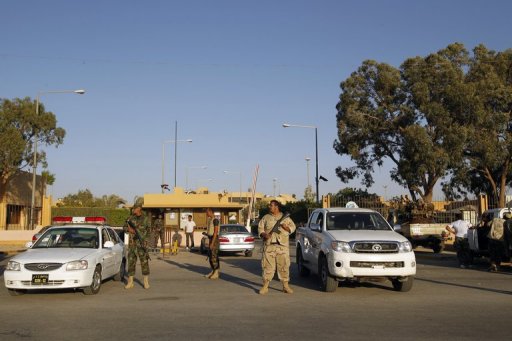After he scored a goal in a recent match against Sudan in the African Nations Cup, Egyptian soccer star Abou Trika lifted his jersey to show an undershirt inscribed with the message “Sympathize with Gaza . His message earned him a yellow card for violating a no-politics rule but promptly crowned him the latest hero for Palestine. While the plight of Gazans does indeed deserve concern, it was telling that Abou Trika’s t-shirt made no mention of sympathy for, say, Darfur, where some 200,000 have died in fighting between rebels and pro-government militias and 2.5 million driven from their homes. But it has been so for decades in the Arab world, where issue after issue is sacrificed at the altar of the Israeli-Palestinian conflict. I must confess that when Hamas militants blasted holes into Egypt’s border to end an Israeli blockade on Gaza, my first thought was how lucky those Gazans were. Landlocked and living on less than $2 a day, their plight rarely elicits envy, I know. But there are Egyptian slums that swim in more sewage and are submerged in even greater poverty. In those slums, chronic diseases go unchecked and uncured, and children grow up next to the dead in tombs turned into makeshift housing. Yet nobody rushes to blast holes into the imaginary border of poverty that suffocates those slums nor are they sporting t-shirts urging us to sympathize. Why? Because Israel cannot be blamed. For decades, successive dictators in the Arab world have sacrificed their respective national concerns on the altar of the Israeli-Palestinian conflict, telling us it must be resolved before any kind of progress can be made, whether it s stopping terrorism, embracing democracy or ending poverty. Unsurprisingly, despite peace with Israel for the past 29 years, Egypt still suffers from all those problems. As a Jerusalem-based Reuters correspondent in 1998, I visited several Palestinian refugee camps on the West Bank and in the Gaza Strip and was astonished to see better living conditions than the slums of Cairo, my hometown. (Frustration and not mean-spiritedness compels me to make that comparison.) Despite its 1979 peace treaty with Israel, the Egyptian regime discourages its citizens from visiting Israel or the Palestinian areas, so few can make the comparison themselves. Arab media, particularly the state-owned kind, are equally discouraged from focusing on national issues — such as the desperate state of our slums — and instead devote most newsprint and airtime to the Israeli-Palestinian conflict or Iraq. The latter never got much attention when Saddam Hussein was filling mass graves with Shi’ites and Kurds, but catapulted to the top of the news bulletins when the Arab world’s other bete noire — the United States — invaded Iraq in 2003. Israeli leaders continuously keep our Palestine obsession alive by expanding settlements and collectively punishing Palestinians — always chipping away at the legitimacy of Palestinian leaders who showed the least desire to reach that elusive peace. Recently the baton of Palestine passed into the firm and dangerous grip of Islamists. Years of corrupt Fatah leadership handed Hamas a 2006 electoral victory, which unfortunately paved the way for civil war between the rival factions andshattered illusions that Palestinian leaders cared more for their people than their jostle for power. The masked gunmen of Hamas — who lob rockets into Israel with little regard for the consequences for their own people — are now the heroes of the day for bombing the Egyptian border. Egypt, to the west and Mahmoud Abbas’ Fatah faction to the east are seen as Israel’s surrogate jailers of Gaza, and the more Israel tightens its grip the more that scenario is magnified. Some Egyptians struggled to square their fears over seeing armed Islamists bomb their country’s borders with their desire to end the humanitarian crisis in Gaza. The popular social networking site Facebook became home to some heated arguments in groups titled “Save Gaza for Humans Not Hamas and “Get the Palestinians Away from Arish — We Want Our Borders Back. A young Egyptian woman told me she considered Hamas’ action at the Egyptian border an invasion : “They did blow up the border. Putting women and children first does not make it ok, she said. “They attacked the Egyptian forces. They acted like thugs. It was a political move, and they had no respect for Egypt. That s why I want them out really. One of the most honest attempts to confront the consequences of the Israeli-Palestinian conflict came from another pop icon, singer Sha’aban Abdel-Raheem. A hero of “Sha’abi music, akin to hip-hop in both its ability to give voice to the street and to garner accusations of vulgarity, Abdel-Raheem proudly declared “I hate Israel in a 2001 hit song and damned Denmark in 2006, after a newspaper there published cartoons of the Prophet Mohammed. His latest song takes a swing at Palestinian leaders. Released before Hamas bombed the Egyptian border, “Who would believe it? conveys Abdel-Raheem’s dismay at the sight of “Hamas versus Fatah and Fatah versus Hamas, fighting like brothers over inheritance. He accuses the two groups of forgetting “who robbed from you and fighting each other over power and positions, and tells them they betrayed him after he “courageously declared I hate Israel in the song that put him on the international media map, including a spot on CNN. I never thought I’d say it but I nominate Abdel-Raheem — or Sha’abola as he’s fondly known — as the hero of Palestine. Mona Eltahawy is an award-winning New York-based journalist and commentator, and an international lecturer on Arab and Muslim issues.
